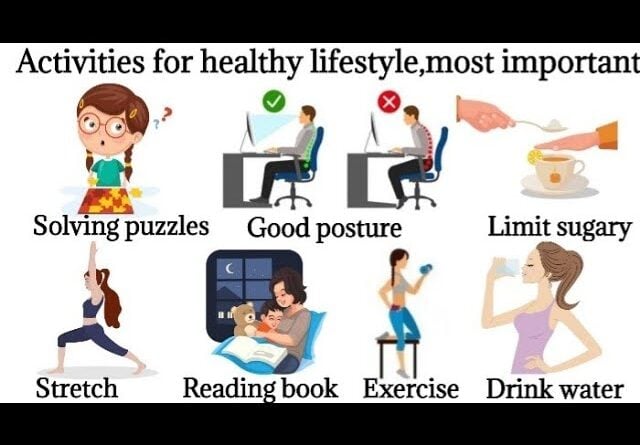
The Power of Nourishment: Unveiling the Crucial Link Between Nutrition and Physical Well-being
The Foundation of Health: Nutrition
When it comes to achieving optimal physical well-being, one cannot underestimate the power of nourishment. Nutrition plays a fundamental role in supporting our body’s functions, promoting growth, preventing diseases, and enhancing overall vitality. The food we consume acts as fuel for our bodies, providing essential nutrients that are necessary for our cells, tissues, and organs to function properly.
The Key Nutrients for Physical Well-being
A balanced diet consists of various nutrients that work synergistically to support our bodies. Let’s explore some of the key nutrients and their role in promoting physical well-being:
1. Carbohydrates
Carbohydrates are the primary source of energy for our bodies. They are broken down into glucose, which is then used by our cells for energy. Including complex carbohydrates such as whole grains, fruits, and vegetables in our diet provides us with sustained energy throughout the day.
2. Proteins
Proteins are essential for growth, repair, and maintenance of body tissues. They play a crucial role in building and repairing muscles, organs, and immune cells. Good sources of protein include lean meats, fish, eggs, dairy products, legumes, and nuts.
3. Fats
Contrary to popular belief, fats are an essential part of a healthy diet. They provide energy and help absorb fat-soluble vitamins. Choosing healthy fats such as avocados, nuts, seeds, and olive oil can improve heart health and support brain function.
4. Vitamins and Minerals
Vitamins and minerals are micronutrients that are required in small amounts but have a significant impact on our health. They play various roles in maintaining our immune system, supporting bone health, promoting cell growth, and aiding in energy production. Consuming a diverse range of fruits, vegetables, whole grains, and lean proteins ensures an adequate intake of these essential nutrients.
The Role of Nutrition in Disease Prevention
Proper nutrition not only supports our overall well-being but also plays a vital role in disease prevention. A diet rich in fruits, vegetables, whole grains, and lean proteins can help reduce the risk of chronic conditions such as obesity, heart disease, type 2 diabetes, and certain types of cancer.
For example, a diet high in fiber from whole grains and vegetables can lower cholesterol levels and reduce the risk of heart disease. Consuming foods rich in antioxidants, such as berries and leafy greens, helps protect our cells from oxidative damage, reducing the risk of cancer.
Furthermore, maintaining a healthy weight through proper nutrition can significantly reduce the risk of obesity-related conditions. A balanced diet that is low in processed foods and added sugars can help manage weight and prevent the onset of type 2 diabetes.
The Impact of Nutrition on Energy Levels and Mental Health
Our dietary choices not only affect our physical health but also have a profound impact on our energy levels and mental well-being. Proper nutrition provides us with the energy needed to perform daily activities and maintain focus throughout the day.
A diet high in processed foods, refined sugars, and unhealthy fats can lead to energy crashes and feelings of fatigue. On the other hand, a diet rich in whole foods, complex carbohydrates, and lean proteins can provide sustained energy and improve cognitive function.
Additionally, research has shown a strong link between nutrition and mental health. Certain nutrients, such as omega-3 fatty acids found in fatty fish, have been shown to reduce symptoms of depression and anxiety. A diet rich in fruits, vegetables, and whole grains provides essential vitamins and minerals that support brain health and promote overall mental well-being.
The Importance of a Balanced Diet
While individual nutrients play crucial roles in our physical well-being, it is important to emphasize the importance of a balanced diet. Consuming a variety of nutrient-dense foods ensures that we obtain all the essential nutrients our bodies need to function optimally.
Avoiding restrictive diets or extreme fads is essential for maintaining a healthy relationship with food. Instead, focusing on portion control, moderation, and incorporating a wide range of whole foods into our diet can help us achieve and maintain physical well-being.
Conclusion
Nutrition is undeniably the cornerstone of physical well-being. By nourishing our bodies with a balanced diet that includes all the essential nutrients, we can support our overall health, prevent diseases, and enhance our energy levels and mental well-being. Prioritizing nutrition and making informed dietary choices is an investment in our long-term physical and mental health.








